To commemorate the 20th anniversary of the implementation of the Oregon Death with Dignity Act, we are featuring stories of those who in 1997 campaigned against the repeal of the law adopted by Oregon voters 3 years before and who continue to advocate for assisted dying laws nationwide. Today we are featuring Deborah Ziegler, a death with Ddignity advocate in Carlsbad, California and the newest member of the Death with Dignity National Center’s Board of Directors. In 2014, Ziegler’s daughter, Brittany Maynard, suffering from terminal brain cancer, moved from California to Oregon to take advantage of the state’s death with Dignity law. She used the law to end her life on November 1, 2014. Her story made international headlines and catalyzed the movement for death with Dignity worldwide.
Other installments in the series:
- 20 Years of the Oregon Death with Dignity Act
- “A Better Way”: George Eighmey’s Journey Toward Death with Dignity Nationwide
- “We Never Gave Up”: Geoff Sugerman on Campaigning for Death with Dignity
- From the Archives, 1997: In Letters to Lawmakers, Oregonians Voice Support for Death with Dignity
- “A Last Loving Gift”: Nora Miller on Grief, Advocacy, and the Right to a Dignified Death
- “Everyone Should Have This Option”: Jan Rowe on her Family’s Commitment to Death with Dignity”
- “We Have to Be Part of the Debate:” Ann Jackson on the Role of Hospice in the Death with Dignity Movement
*
The first step in leaving the world I formerly inhabited was more like a jarring shove. Not a tiny toe-out-the-door kind of move. Instead, I was cruelly pushed into a new life.
So begins Deborah Ziegler’s book, Wild and Precious Life, which chronicles the life, death, and legacy of her daughter, Brittany Maynard. Three years ago, Maynard’s story started a global conversation about death, dying, and patient rights at the end of life that brought death with dignity to the fore.
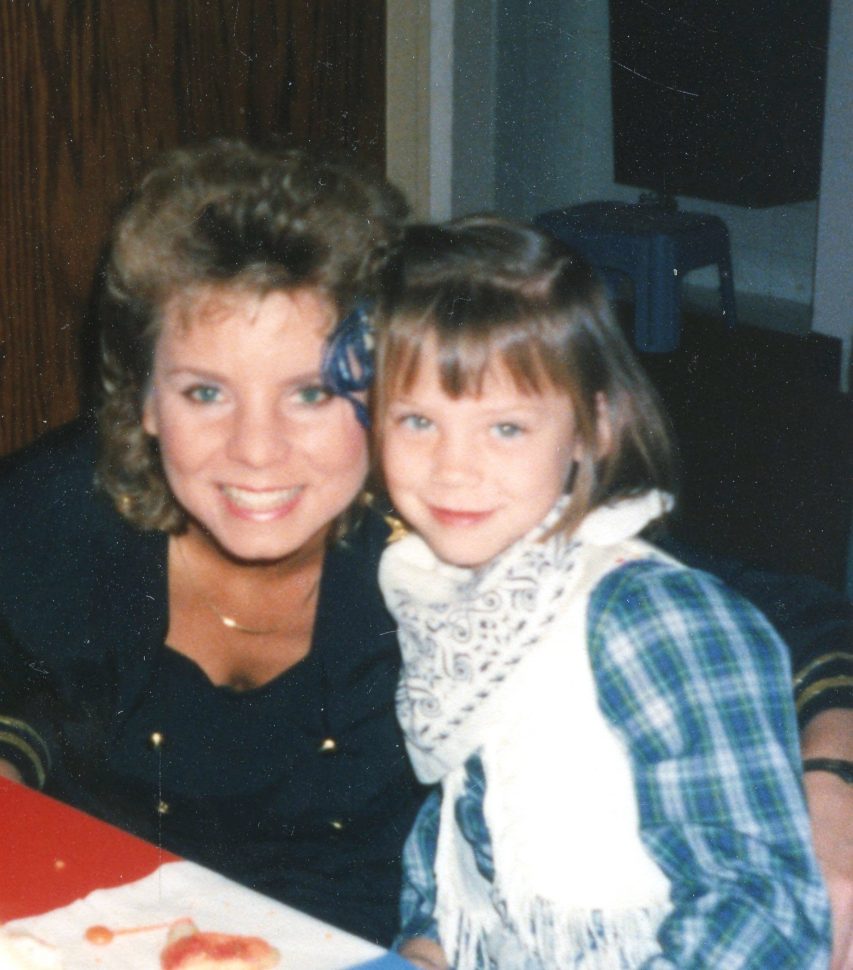
Deborah Ziegler with her daughter, Brittany Maynard, at Brittany’s preschool.
The Diagnosis
On New Year’s Eve 2013, Maynard was rushed to the hospital with a debilitating headache. Soon after, she and her family learned that she had a large tumor in her brain that had been growing for nearly a decade. Maynard was just 29 when she was diagnosed with stage 4 glioblastoma, an aggressive and incurable form of cancer. Even with an eight-hour craniotomy to debulk the tumor, Maynard’s cancer would kill her within the year.
In the wake of her daughter’s diagnosis, Ziegler experienced the full gamut of emotions: fear, anger, confusion, and grief. She was mourning the daughter she knew she would lose all too soon. But Brittany’s commitment to facing her disease in a practical and self-possessed way provided Ziegler with some measure of comfort and strength in a dark, uncertain time.
From the beginning, Ziegler says, “Brittany became well-read and articulate about her own disease. She could speak to her doctors in a bold, knowledgeable and forthright way, and she set autonomous boundaries very early on with friends and family. She said, ‘This is my life, this is my illness, this is my brain tumor that is killing me.’ She did not allow people who were undermining her into her circle of care.”
Unfortunately, the medical professionals in California she and Ziegler talked to about her brain cancer did not speak to Maynard with the same candor.
“There was no doctor, no nurse, no social worker that was open to discussing Brittany’s desires regarding her impending death,” Ziegler recalls. “We met with a variety of unprofessional responses. They were so uncomfortable; they didn’t want to face Brittany and her questions.”
The Oregon Law
Maynard had read about and discussed the Oregon Death with Dignity Act in a college course. Now that she was faced with her own terminal illness, she knew she wanted to use the option to prevent near-certain suffering and unbearable pain at the end of her life.
After Brittany stated that she wanted to pursue transferring her medical care to Oregon where terminally-ill patients had the legal right to request a physician’s assistance in dying peacefully, her Aunt Sarah volunteered to be the family member that connected with Death with Dignity National Center to learn more about Oregon’s Death with Dignity law and how Maynard might qualify.
“Death with Dignity National Center eased our frantic struggle as we staggered toward something that flew in the face of the natural order of things,” Ziegler says.
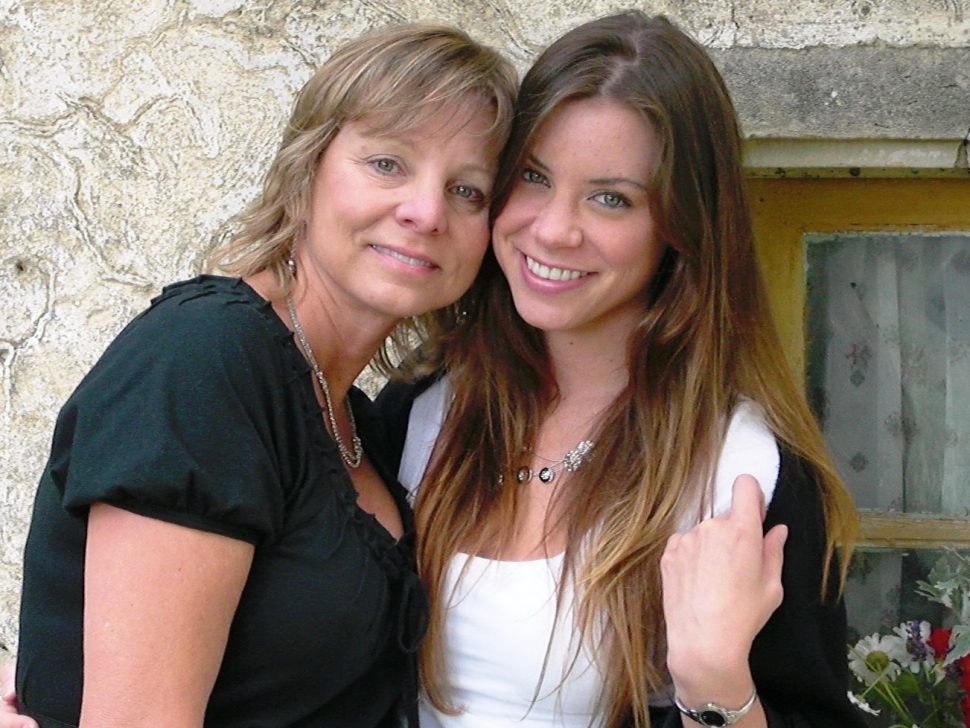
Deborah Ziegler with Brittany Maynard during their 2008 trip to France
In June 2014, Brittany’s family moved her to Oregon so that when the time came Maynard could use the state’s death with dignity law to end her life. From then on, Ziegler says, the conversations with medical professionals were frank, transparent, and a welcome change from what they had experienced in California.
“It was not until we got to Oregon that we had doctors who would openly discuss that she was dying, that this is what her death would look like in general terms,” Ziegler says. “The healthcare team introduced and recommended several different options,” such as working closely with a neurosurgeon to monitor the tumor, selecting a palliative care specialist to manage the often-debilitating pain and meeting with a mental-health therapist who specialized in working with terminally-ill patients.
“It was so obvious on so many different levels that Oregon had a more professional way of handling the terminally ill,” Ziegler adds.
The Publicity
In the summer of 2014, Maynard was contacted by a documentary filmmaker based in New York. She had heard about Maynard’s story and wanted to make a short film featuring an interview with her. Maynard agreed. Maynard was also approached by People magazine about doing a feature story. On October 6, 2014, the young documentary filmmaker’s video was posted to YouTube and People posted the story on its website.
Ziegler says she and Maynard were “blindsided” by the viral response to the video.
“I don’t think Brittany had any idea when she did the interview what the result would be,” Ziegler says.
“We actually left Portland for a few days,” she adds, “because the public response was so overwhelming.” They sought peace in the natural beauty of the nearby of the Columbia River Gorge, taking walks among pear trees and admiring the panoramic views of the passing landscape from a historic train.
When they returned, they discovered that Brittany’s story had gone global.
“She struck a nerve with people all over the world,” Ziegler says. “She was able to look straight into the camera and speak calmly and rationally about her choices. She was direct, open, unscripted Brittany. It disarmed people. They saw right into her soul.”
While a public outpouring of love, admiration, and support for Maynard and her family was inspiring and comforting to Brittany and her family, there were others who saw Maynard’s decision differently. Mostly citing opposition on religious grounds, scores of right-to-die opponents either wrote notes begging Maynard not to pursue her legal right to a peaceful death or they penned threatening screeds in newspapers and blogs.
“We were shocked that people could say such hateful things to a young woman dying of a brain tumor,” Ziegler says. “Brittany felt violated. She didn’t expect perfect strangers to try to tell her what she should or shouldn’t do regarding her death. She felt it was presumptuous at best.”
Ziegler tried to protect Maynard from the negative messages, but “backing away from the Internet? That was impossible to do.”
The Death
In the midst of the media blitz, Maynard began planning for what she called her “as-good-as-it-gets death” set for November 1, 2014. She selected poetry she wanted her mother to read as she ingested the medication that would gently end her life. Ziegler was to read several poems by Maynard’s favorite poet, Mary Oliver.
In Wild and Precious Life, Ziegler writes with unflinching detail about Brittany’s final moments – and the heartbreak of losing her only child.
Someone handed me a laptop, and I read several of Mary Oliver’s exquisite poems in a shaky voice. I kept reading through tears as if my voice could keep Britt here, keep her with me.
At some point, Maudie, who held Brittany’s pulse point, tapped me on the shoulder and whispered, “She’s gone. Her heart has stopped.”
I set the laptop down and ran to the landing of the stairs outside Brittany’s room. I turned in a circle. “No…no…no…,” I said. I ran downstairs and outside into the nearby woods. …My husband followed me. We stood under the shelter of the trees, and he held me as I wept and screamed.
The sky wept. Brittany, my beautiful brave girl, passed away purposefully and peacefully, just as she planned. Death was kind, graceful even, and spared Brittany a great deal of physical pain and mental anguish.
The Legacy
In the wake of Maynard’s death, Ziegler says she and her husband gave themselves the time and space to grieve. Despite the anguish, they wanted to do their best to honor Brittany’s legacy by advocating for death with dignity in her home state.
“We volunteered to testify for the End of Life Option Act,” the assisted-dying legislation proposed by California Senators Bill Monning and Lois Wolk. We would drop everything at a moment’s notice and fly to Sacramento,” the state’s capital, “and testify. We walked the halls and met with legislators sharing our heartbreaking journey.”
In Senator Monning’s office they met Death with Dignity’s Board president, George Eighmey, and immediately gravitated toward his open style of communication.
Ziegler says that she and her husband were able to connect with lawmakers through their ability to emphasize with those still unfamiliar with and ambivalent about death with dignity.
“We spent the first part of Brittany’s diagnosis not being able to wrap our minds around the idea either,” Ziegler says. “We were able to honestly say, ‘You have to open your mind, you have to ask yourself some difficult questions and be reflective.’”
“I also was able to relate to many legislators parent to parent,” she adds. “I looked them in the eye and asked them, ‘What would you do? Would you just leave your child to suffer?’”
Throughout the 2015 legislative session, Ziegler, along with her husband, Gary, became a constant presence at the California State Capitol. She carried a large photo of her daughter with her at press conferences; she told stories about her daughter that resonated with countless Californians and Americans across the country. But the public’s embrace of Maynard’s story did not mean that victory came easily.
The California Law
The medical community remained split on the issue; legislators had wildly different views on medical aid in dying. But as the legislative session progressed, more lawmakers and medical professionals voiced their support for the End of Life Option Act. In May 2015, the California Medical Association changed its position on the legislation, shifting from opposition to neutrality. In essence, CMA left decisions about end-of-life options, including death with dignity, to be made by doctors and their patients.
On June 4, the California Senate passed the End of Life Option Act. However, a month later the bill was pulled from consideration in the state Assembly due to insufficient support. For a while, it seemed as if the efforts by Maynard’s family and thousands of grassroots activists would come to naught.
Then, in August, California Governor Jerry Brown convened a special legislative session on healthcare. The End of Life Option Act had another chance. This time, its supporters prevailed.
The bill was reintroduced in the state Assembly by its co-author, a passionate spokesperson, Assemblywoman Susan Talamantes Eggman. The bill passed on September 9; the Senate passed it on September 11. The fate of the bill was now in the hands of Gov. Brown, a former Jesuit seminary student.
Governor Brown signed the bill on October 5, 2015. In his signing message, the governor detailed his own moral struggle with the issue of death with dignity and what eventually convinced him to extend the right to all Californians.
“In the end, I was left to reflect on what I would want in the face of my own death,” Brown wrote. “I do not know what I would do if I were dying in prolonged and excruciating pain. I am certain, however, that it would be a comfort to be able to consider the options afforded by this bill. And I wouldn’t deny that right to others.”
“I admire him for his courageous decision,” Ziegler says.
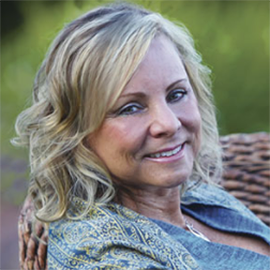
Deborah Ziegler
Death with dignity was now a legal option for terminally ill patients in California. Ziegler was overjoyed. But she was not done fighting.
The Advocacy
Ziegler has worked closely with Death with Dignity National Center in the past two years, testifying before state Legislatures, speaking at events, and recording radio advertisements that helped persuade voters to pass a right-to-die law in Colorado on November 8, 2016. This year, she joined our Board of Directors.
“I feel like every step we make, every time we raise the consciousness levels, we get closer” to making death with dignity more widely available, Ziegler says. “It’s a process. I look at it in a more long-term way; I don’t get caught up in whether or not something gets passed today.”
“State by state, opportunities are going to change as new elections take place,” she adds. “Change happens where you have strong advocates. California had very strong, calm, articulate leaders in the Senate and Assembly that advocated a bill and did a beautiful job. Finding those advocates and utilizing the grassroots efforts of people in all the states” will be critical to success in future states.
Ziegler believes that the conversation about death and dying catalyzed by her daughter’s story has helped the death with dignity movement achieve unprecedented visibility, momentum, and support.
“I don’t think that the population of the U.S. will tolerate not having this human right for a long period of time,” Ziegler says. “Now that some states have passed this law, states that don’t have this law are on the outside looking in. I think you’re going to see this subject keep coming up. We have to keep talking about it.”
Ziegler says one question she never gets asked is, “Are you grateful?” It might seem like a strange and uncomfortable question to ask a bereaved mother.
“But it’s a very important question,” Ziegler says.
I am so grateful to Oregon and to the forward-thinking people who championed the death with dignity cause more than twenty years ago.
“I have a sweet place in my heart for the people of Portland, for George Eighmey, and for all of the doctors and attorneys in Oregon who risked their careers by standing up and speaking on behalf of the terminally ill.
“Although I don’t think of Brittany’s death as a fairytale ending, it was without a doubt a kinder, gentler ending than the certainty of unbearable and prolonged pain that her brain tumor held in store for her.”
She notes that because of the Oregon Death with Dignity Act, “The process of dying is handled more deftly and kindly in Oregon. Discussion about death between physicians and terminally-ill patients are more open. There isn’t a heavy cloud of fear surrounding the topic of death. The whole process of dying, no matter how you die, is elevated when doctors are able to discuss things openly with patients. Patients are not only having better deaths, they have more say in how they navigate the last months of their life. It’s such a beautiful tribute to the power of the bill.”
Ziegler has dedicated her life to honoring her daughter’s legacy in the best way she knows how: by paying it forward.
“We are doing the best we can to follow what Brittany asked us to do, to speak up for people that can’t speak up for themselves,” Ziegler says. “I never lose sight of the fact that death with dignity is a human right, and that people are beginning to create a grassroots movement around it.
“Our lives are wild and precious, and I promised to my daughter to try to live mine with those words in my heart,” Ziegler says. “That’s what Brittany said she wanted for me.”
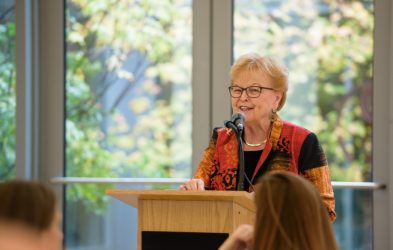
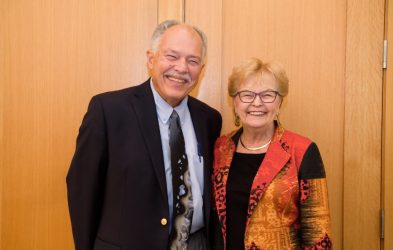
2 Comments.
Teresa
How does a person in Washington find a doctor willing to work with someone who is dying. Thought he had one lined up but the doctor keeps dodging him with another hoop to jump through. He has the psychological, his family doctor who is licensed in Washington was willing to sign off. BUT, the main doctor who told him he would get the script keeps finding reasons to deny him. He needs the dignity. Help?
Rebecca Schlessinger
Please check your email, Teresa.
Comments are closed.